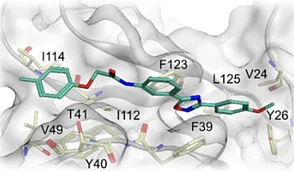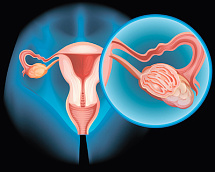The human brain has learned to save energy on signal transmission

Science has long been looking for the very feature that makes the human brain more unique than the brains of other mammals. Previously, this was not lucky: the general plan of the structure and the cellular composition were the same. Finally, the MIT researchers came up with an answer that lay in ion channels. These are proteins in cell membranes that pump ions, including creating electrical impulses.
Background
In different mammals, from rodents to monkeys, the same density of ion channels is maintained with an increase in brain volume. That is, in one milliliter of a substance, they are approximately the same amount. The same number of ion channels provides the same conductivity for everyone. For example, in mammals with large brains, neurons are larger and therefore there are more ion channels in neurons than in mammals with smaller brains. Everyone except humans.
Results
The researchers found that there is an abnormally low number of ion channels per human cortex neuron. This was measured by the conductivity of nerve cells. In mammals of the other nine species, cortical conductivity was similar to each other, and in humans it was 4 times lower. The authors of a study in 2018 compared the brains of humans and rats and came to similar results.
Interpretation
Scientists suggest that the decrease in the density of ion channels helped our ancestors save energy on the transmission of impulses. This could free up resources to complicate the connections between neurons and the development of the cerebral cortex. Now it's interesting to explore better the brains of the largest and most intelligent mammals.
The discovery of ion channels is a new answer to the question "Why is the human cerebral cortex so complex?" The problem is important, because it is the cortex that is our consciousness, intellect, memory, learning and self-control. Without it, human ancestors would not have built the culture that now defines our species.
That a simple redistribution of ion channels in neurons could be the main reason for the emergence of humanity is a reminder of the exceptional importance of ion channels. They allow you to transmit signals through the body in a fraction of a second and provide a normal balance of ions in every living cell. Therefore, many drugs target specific ion channels.
A drug can stop the progression of disease simply by blocking the ion channel that transmits the signal that triggers pathogenesis. To develop treatments for such pathologies, it is useful to have in the research arsenal a set of molecules that target different potential drug targets. This kit is called ChemDiv's Ion Channels Focused Library, it will help you simplify your research work, read more about it here https://www.chemdiv.com/catalog/focused-and-targeted-libraries/ion-channels-focused-library/
Alexander Khazanov
References
Beaulieu-Laroche, Lou, et al. "Allometric rules for mammalian cortical layer 5 neuron biophysics." Nature 600.7888 (2021): 274-278.
Background
In different mammals, from rodents to monkeys, the same density of ion channels is maintained with an increase in brain volume. That is, in one milliliter of a substance, they are approximately the same amount. The same number of ion channels provides the same conductivity for everyone. For example, in mammals with large brains, neurons are larger and therefore there are more ion channels in neurons than in mammals with smaller brains. Everyone except humans.
Results
The researchers found that there is an abnormally low number of ion channels per human cortex neuron. This was measured by the conductivity of nerve cells. In mammals of the other nine species, cortical conductivity was similar to each other, and in humans it was 4 times lower. The authors of a study in 2018 compared the brains of humans and rats and came to similar results.
Interpretation
Scientists suggest that the decrease in the density of ion channels helped our ancestors save energy on the transmission of impulses. This could free up resources to complicate the connections between neurons and the development of the cerebral cortex. Now it's interesting to explore better the brains of the largest and most intelligent mammals.
The discovery of ion channels is a new answer to the question "Why is the human cerebral cortex so complex?" The problem is important, because it is the cortex that is our consciousness, intellect, memory, learning and self-control. Without it, human ancestors would not have built the culture that now defines our species.
That a simple redistribution of ion channels in neurons could be the main reason for the emergence of humanity is a reminder of the exceptional importance of ion channels. They allow you to transmit signals through the body in a fraction of a second and provide a normal balance of ions in every living cell. Therefore, many drugs target specific ion channels.
A drug can stop the progression of disease simply by blocking the ion channel that transmits the signal that triggers pathogenesis. To develop treatments for such pathologies, it is useful to have in the research arsenal a set of molecules that target different potential drug targets. This kit is called ChemDiv's Ion Channels Focused Library, it will help you simplify your research work, read more about it here https://www.chemdiv.com/catalog/focused-and-targeted-libraries/ion-channels-focused-library/
Alexander Khazanov
References
Beaulieu-Laroche, Lou, et al. "Allometric rules for mammalian cortical layer 5 neuron biophysics." Nature 600.7888 (2021): 274-278.


